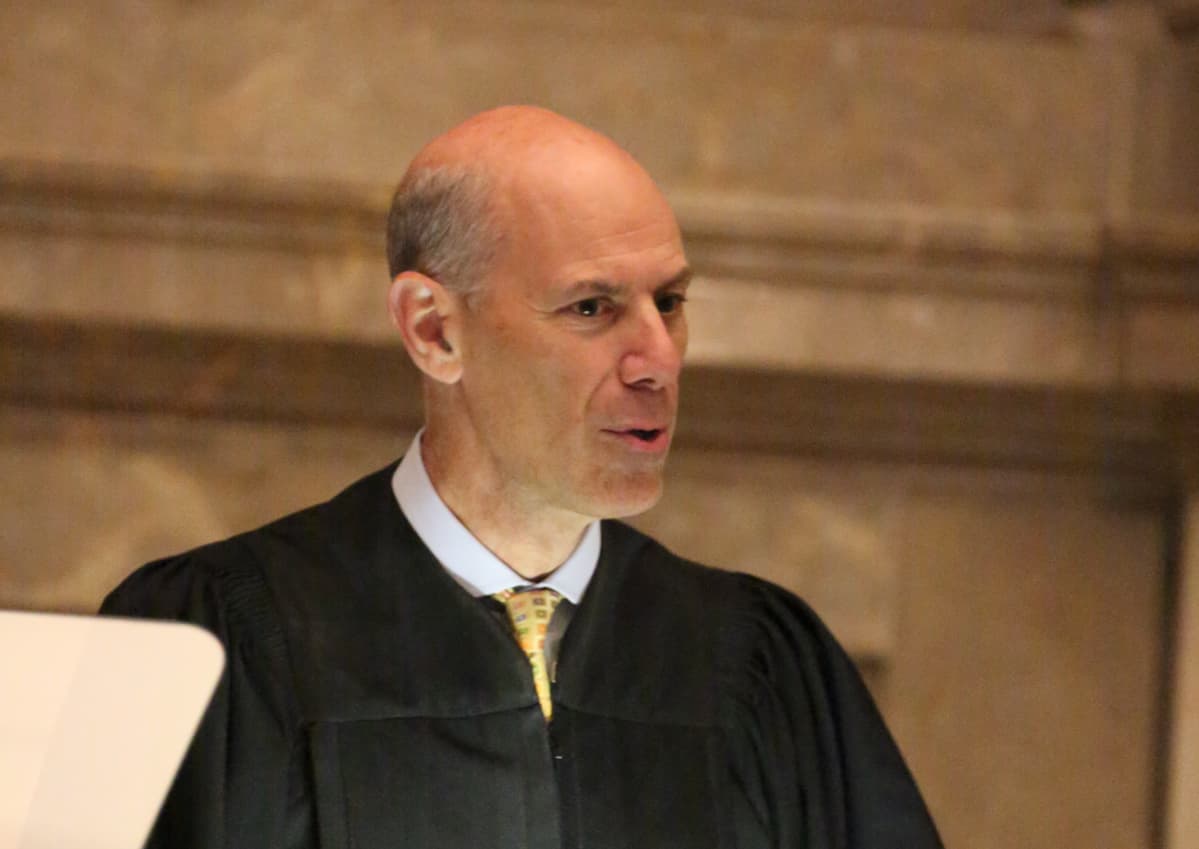Trump’s Deportation of ‘Monsters’ Despite a Court Order Could Have the Makings of a Constitutional Crisis
A federal judge wants to know if planes delivered migrants to El Salvador despite his command to turn them around.

A contentious hearing on Monday evening between a federal judge, James Boasberg, and the Department of Justice marks a new crescendo in the escalating conflict between the Trump administration and the federal judiciary that could soon mature into a constitutional crisis.
The deportation of some 250 alleged Venezuelan gang members to El Salvador from Texas via a series of three airplane flights and under the aegis of the Alien Enemies Act of 1798 was the subject of the conference. When Judge Boasberg asked how many planes had taken off after he ordered the process frozen, the government responded that “those are operational issues and I am not at liberty to provide information.”
The DOJ also on Monday asked the the District of Columbia Circuit of the United States Court of Appeals to remove Judge Boasberg from the case, citing “highly unusual and improper procedures.” The DOJ’s attorney, Abhishek Kambli, repeatedly invoked “national security” to avoid answering questions from the bench. Judge Boasberg gave the government until noon on Monday to certify that they did not disobey his order.
The conflict began on Saturday night, when a federal district court judge at the District of Columbia, Judge Boasberg, ordered the government not to deport anyone in custody over the Enemies Alien Act, which has only been invoked three times before in American history. Mr. Trump has declared his intention to use the statute against a Venezuelan gang, Tren de Aragua.
The text of that statute grants presidents expansive powers of deportation during a war with “any foreign nation or government” or when “an Invasion or predatory incursion is perpetrated, attempted, or threatened against the territory of the United States by any foreign nation or government.”
The American Civil Liberties Union filed suit on behalf of Venezuelans in federal custody who claim that they are not members of Tren de Aragua but were put on planes headed for El Salvador anyway. Judge Boasberg told government lawyers on Saturday night that “You shall inform your clients of this immediately, and that any plane containing these folks that is going to take off or is in the air needs to be returned to the United States.”
According to the ACLU, two planes bound for El Salvador were in the air as Judge Boasberg orally conveyed his order, and a third took off afterward. President Bukele of El Salvador on Sunday morning posted to X “Oopsie … too late” in reference to those planes. That was reposted by a spokesman for Mr. Trump, Steven Cheung. The White House press secretary, Karoline Leavitt, insists that “the administration did not ‘refuse to comply’ with a court order.”
The White House’s immigration tsar, Tom Homan, said on “Fox & Friends” on Monday that “I don’t care what the judges think. I don’t care.” The ACLU argues that “Whether or not the planes had cleared U.S. territory, the U.S. retained custody at least until the planes landed and the individuals were turned over to foreign governments.” El Salvador has arranged to hold them in its prisons.
A senior administration official tells Axios that “There was a discussion about how far the judge’s ruling can go under the circumstances and over international waters and, on advice of counsel, we proceeded with deporting these thugs.” The outlet quotes a second official as arguing that the alleged gang members “were already outside of US airspace. We believe the order is not applicable.”
That point was embroidered by Ms. Leavitt, who explains in a statement that “a single judge in a single city cannot direct the movements of an aircraft carrier full of foreign alien terrorists who were physically expelled from U.S. soil.”
The ACLU, though, contends that the decision to allow the flights to land at El Salvador “strongly suggests that the government has chosen to treat this Court’s Order as applying only to individuals still on U.S. soil or on flights that had yet to clear U.S. airspace as of 7:26pm (the time of the written Order).” Judge Boasberg’s oral wishes were expressed around 45 minutes earlier. The ACLU calls that a “blatant violation of the Court’s Order.”
Lawyers for the Department of Justice on Monday afternoon, though, argued in a court filing that “an oral directive is not enforceable as an injunction and that “Written orders are crucial because they clarify the bounds of permissible conduct.” That filing also noted that the “President’s Article II powers to conduct military operations overseas” as one the prerogatives of the executive at stake in this case.
The Constitution ordains that the president “shall take Care that the Laws be faithfully executed,” which is commonly taken as the source for the executive’s role in enforcing the rulings of the judiciary. Ms. Leavitt, though, argues on behalf of the president that “Federal courts generally have no jurisdiction over the President’s conduct of foreign affairs, his authorities under the Alien Enemies Act, and his core Article II powers to remove foreign alien terrorists from U.S. soil and repel a declared invasion.”
Mr. Trump on Sunday shared a video of the Venezuelans arriving at El Salvador with the caption “These are the monsters sent into our Country by Crooked Joe Biden and the Radical Left Democrats. How dare they! Thank you to El Salvador and, in particular, President Bukele, for your understanding of this horrible situation.”
Judge Boasberg’s order only lasts for 14 days, and only covers deportations under the Enemies Alien Act, not other immigration statutes. An unnamed member of the administration tells Axios that “This is headed to the Supreme Court. And we’re going to win.”

